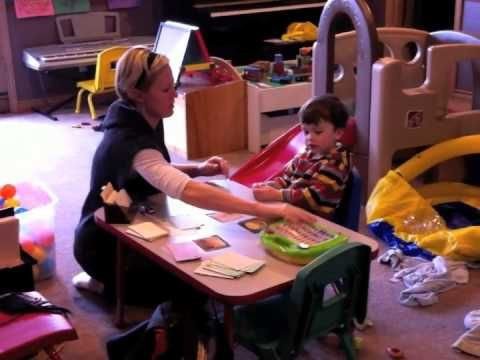Applied Behavior Analysis Move Up ABA is a method used to enhance behaviors, such as social skills, in children, especially those diagnosed with autism spectrum disorder (ASD). This comprehensive approach involves observation and behavior analysis to create strategies promoting changes in social interaction. The significance of developing skills in children cannot be overstated, as these abilities are vital for building relationships, effective communication, and navigating situations.
Understanding Social Skills
It is essential to define social skills before discussing how ABA therapy boosts them. Social skills refer to the capabilities that enable individuals to interact successfully with others. They encompass nonverbal communication, active listening, cooperation, and comprehension of social norms and cues. For children, mastering these skills is crucial for forming friendships, participating in group activities, and fully engaging in their communities.
The Role of ABA Therapy
ABA therapy is customized to meet each child’s needs. It typically begins with an assessment to pinpoint areas requiring improvement. Regarding social skills enhancement, ABA therapy involves reinforcing desired behaviors through feedback, breaking down social interactions into manageable steps, and progressively teaching these abilities.
This could involve teaching a child how to start a conversation, make eye contact, or respect space, all essential aspects of social interaction. Strategies Utilized in ABA Therapy
ABA therapy utilizes methods to improve skills. One common approach is modeling, where the therapist demonstrates a behavior for the child to observe and mimic. This method can be quite effective in teaching cues like how to greet someone or show empathy.
Another useful technique is role-playing, where children act out scenarios in a safe setting to practice their skills. Through role-playing, kids can receive feedback on their interactions, helping them refine their abilities for real-life situations.
Social stories are also commonly employed in ABA therapy to prepare children for settings. These stories offer a narrative that outlines expected behaviors and responses in a situation, making it easier for children to grasp and navigate social interactions.
Positive Reinforcement and its Impacts
Positive reinforcement is a key component of ABA therapy. By recognizing and rewarding progress, children are encouraged to repeat desired behaviors. For instance, if a child successfully invites a friend to play, they may receive praise or a small reward. Encouraging a child through reinforcement not only boosts their confidence but also enhances their social skills. Studies suggest that consistently using reinforcement can result in enhancements in social abilities. Children tend to learn when they receive rewards for their efforts, making the learning process both effective and enjoyable.
Tailoring ABA therapy to meet needs is crucial, as every child has unique challenges and strengths. ABA therapists assess each child’s social skill deficiencies and strengths to provide interventions. Whether a child struggles with starting conversations or understanding verbal cues, the therapy can be customized to address these particular areas of need.
Early intervention plays a role in social skills development for children with ASD. Research indicates that starting ABA therapy early leads to outcomes in enhancing skills. Timely and effective interventions can help bridge the gap in abilities, allowing children to interact confidently with their peers and community.
Monitoring progress is essential for evaluating the effectiveness of ABA therapy in improving skills. Practitioners commonly use data collection techniques to track skill advancements over time.
Therapists use assessments and observations to adjust strategies based on a child’s needs and reinforce areas of struggle. This approach, driven by data, ensures that each child gets the support for growth.
The involvement of parents and caregivers is crucial for the success of aba Baltimore. By participating in the therapy process and supporting skill development at home, families can enrich the learning experience. Training programs often equip parents with communication strategies and ways to promote interactions, helping them generalize skills learned in therapy to everyday life.
Improving skills through ABA therapy enhances relationships and fosters friendships as children become better communicators and grasp social dynamics. These stronger connections can impact a child’s self-esteem and overall well-being.
Conclusion
ABA therapy offers an approach to boosting skills in children, especially those with autism spectrum disorder. Techniques like modeling, role-playing, and positive reinforcement empower children to build skills for confident interactions with their peers.
In ABA therapy, starting early, tracking progress regularly, and involving families all play a role in improving social outcomes. As kids develop and mature, they not only learn how to handle interactions but also gain the self-assurance to form lasting connections that will positively impact their future.
